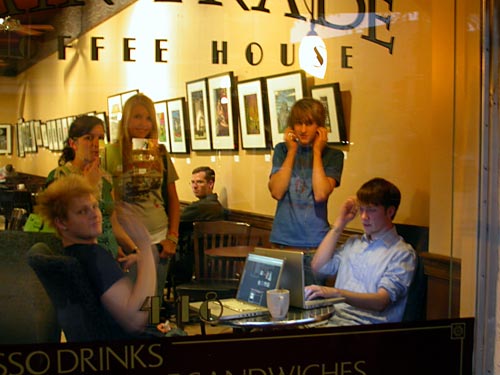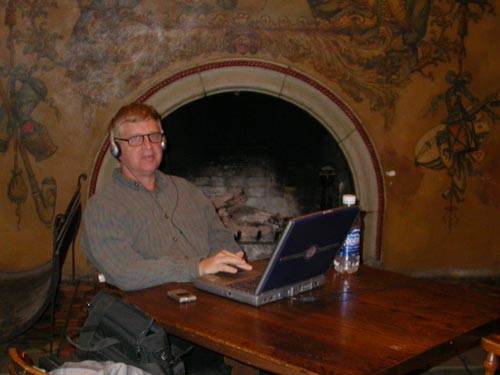Michael Lewis (with his better half, Tabitha Soren riding shotgun taking pictures) visits post flood New Orleans:
Immediately he had a problem: a small generator that powered one tiny window air-conditioning unit. It cooled just one small room, his office. But the thing made such a racket that, as he put it, “they could have busted down the front door and be storming inside and I wouldn’t have heard them. There could have been 20 natives outside screaming, ‘I’m gonna burn your house down,’ and I’d a never heard it.” Fearing he might nod off and be taken in his sleep, he jammed a rack filled with insurance-industry magazines against the door. (Haywood sells life insurance.) In his little office, he sat all night – as far as he knew, the last white person left in New Orleans. He tried to sleep, he said, but “I kept dreaming all night long someone was coming through the door.” He didn’t leave his air-conditioned office until first light, when he crept out and squinted through his mail slot. In that moment, he was what Uptown New Orleans had become, even before the storm: a white man, alone, peering out through a slot in search of what might kill him. All he needed was the answer.

